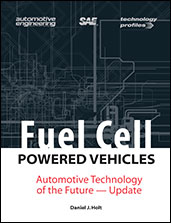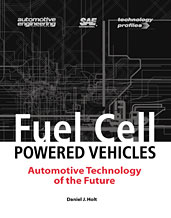Video

Spotlight on Design: Fuel Efficiency: Racing Toward CAFE 2025
2015-04-15
Spotlight on Design features video interviews and case study segments, focusing on the latest technology breakthroughs. Viewers are virtually taken to labs and research centers to learn how design engineers are enhancing product performance/reliability, reducing cost, improving quality, safety or environmental impact, and achieving regulatory compliance. Fuel efficiency, or simply put, how to get more mileage out of the same amount of fuel has become one of the main goals to be achieved by new automotive technologies in the future, thanks in part to new government regulations. In the episode Fuel Efficiency: Racing toward CAFE 2025 (21:24) AVL engineers show simulation and testing being used to design more fuel efficient vehicles, including the equipment that actually analyzes fuel economy.






